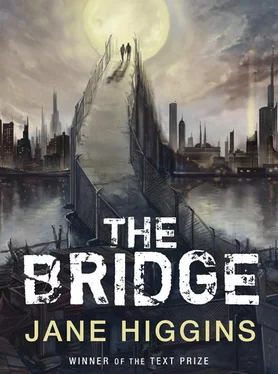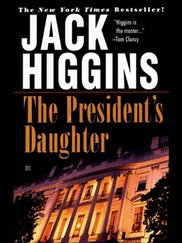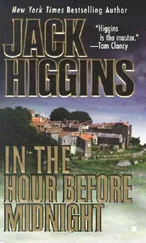Every time I opened my mouth I expected someone to yell ‘Look! A Citysider!’ but he just laughed. ‘Doesn’t like scavengers, the Commander. On your way, then.’
So we went on, not what you’d call keen, but awed all the same by the scale of the bridge. The gate at the other end was lost in the murky late afternoon and the lattice of ironwork towered over us like a gigantic, empty ribcage. A cold wind blustered through it, trying to push us back to the city.
Everyone was hurrying, heads down, battling the wind and we were dragged along in the jostle and rush. When we got about halfway, we stopped as if we’d both decided that we were getting there too fast. We worked our way to the side of the bridge and leaned over it so no one could hear us.
‘There are so many people,’ said Fyffe. ‘I didn’t think there’d be so many.’
They looked like the people we’d met all day at the roadblocks – their faces set at grim, their step a mix of military march and civilian scurry. I tried the ‘You should go back’ line again, but no joy, so I gave that up and peered over the side. It was a long way down. I’d never looked down onto the river before – not from so high up, not from right in the middle of a bridge. The water was black and tumbling, rushing towards Port. And wide. Hostiles had been known to swim it, but I couldn’t see how, it looked too fast. But maybe swimming it would be better than heading over it into Southside armed with nothing but desperation and a few stumbling phrases of Breken. I needed Lou standing next to me saying, Come on! What are you waiting for? They won’t know what’s hit them . And laughing like a maniac.
‘Well, well. It’s the Gilgate sewer rat.’ Not Lou. The commander from Moldam Road. He grabbed my sweatshirt and hauled me round to face him. ‘You know,’ he said, ‘I lost a good person today. If you were in a squad, I’d have you for desertion. And if you were on my bridge, you’d be in a squad. So I might have you for desertion anyway, since here you are.’ He looked me up and down. ‘You don’t have much to show for your scavenging. Who’s this?’
‘Just – just – she’s with me.’
‘Is she. And you’re joining us. How fortunate for us.’ He gave me a push. ‘Move!’ So we had no choice in the end. We walked down the Mol, past the guards at the Southside gate and into enemy territory, Breken militia breathing down our necks the whole way.
As soon as we stepped through the bridge gateinto Southside, I knew that what we were trying to do was insane. You forget, sitting back home behind the high walls and the locked bridges – you forget that Southside is nearly half of a whole city, and the dark half at that. We gripped hands and I glanced at Fyffe. She looked filthy and fierce, every bit the hardened scavenger she wasn’t.
We stepped off the bridge onto what must have been a major trucking route once. Maybe it used to be busy with warehouses and truckstop cafes and markets and storage halls. None of that was left. Now a packed dirt road stretched ahead of us, lined with a jumble of low shacks crammed together, rigged from fragments of the original Southside. They’d used chunks of concrete for foundations and sheets of iron for walls and roofs; planks of wood leaned over doorways, and ramshackle brick chimneys leaked smoke.
For all that it looked like a dump, though, it was humming. Different from the stony silence of the city after dark. This place was alive and peopled: dogs barked and kids yelled and charged about, and people criss-crossed the road ahead of us, talking, calling to each other, laughing, and arguing. Some of them were lighting lamps and hanging them from the roofs of their makeshift shelters; others were building fires on grates by the roadside and huddling round them, warming themselves and cooking. Yes, cooking. The air just about knocked me over with the smell of spices and cooking oil and frying food.
Fish is what I could smell mainly. Fish done in spices and fried up sharp and hot. I’d gone about three steps and taken two breaths of that air before the world started to spin from how light my head was, on account of how empty my stomach was. Fyffe stopped beside me and breathed deep as though filling her lungs would fill her stomach as well. I wondered how hard would it be to filch some fish from a frying pan – pretty hard, because there were a lot of people crowded round each fire, a lot more than you’d think a pan of fish could feed.
‘Sir!’ A voice shouted through the crowd. The commander stopped and stuck an arm out to stop us too. A tall guy, a few years older than me, shouldered his way forward and gave a salute of eye-watering precision. He was darker than me, and sharply dressed, as though he’d just stepped off the pages of some zine – Hostyle: For the Fighting Man .
‘Jeitan.’ The commander returned a salute.
Jeitan said, ‘They’re ready with Tam now, sir. Just waiting on the others.’
‘Right. On my way.’
‘I should have been there, sir.’
The commander shook his head. ‘There’s nothing you could have done. We thought we’d secured the area. However, there is something you can do here.’
‘Sir?’
The commander flicked my shoulder with the back of his hand. ‘I want these two at the Crossing. They’re scavengers from upriver and they think they’re scavenging for free.’ He glared at us. ‘None of this is free. It’s time your kind understood that. Watch and learn.’ He turned back to Jeitan. ‘Take them up the hill and get them cleaned up first. I don’t want them polluting the Crossing.’
‘Sir!’
Jeitan gave a sigh, like, why do I get all the rubbish jobs, and said, ‘Names?’
I blurted out ‘Nik’ before I’d thought better of it, which, two seconds later, I had, but it was out, and too late now. Fyffe, smarter than me, said, ‘Sina.’ No idea where that came from – servants, I guess.
Jeitan said, ‘That’s Commander Vega. You address him as Sir. Clear?’ We nodded. ‘Right,’ he said. ‘This way!’
‘Where are we going?’ I asked.
‘Headquarters,’ he said. ‘Shut up and move!’
We pushed through the crowds and down another road lined with shacks – more bits of concrete and sheet-iron stuck together on a whim and a prayer – if they prayed over here, which we were told they did, but who to and how was always a matter of dispute back home. A mess of people from all over had brought with them a crowd of gods; how they’d negotiated religion in the generations they’d been here kept the strategists back home awake nights, mainly with how to set them one group against another.
I kept a lookout for a way to step sideways into the crowd and lose Jeitan, but he stuck to us like shit on a shoe. We passed families sitting in front of their shacks talking and eating. Little kids screamed around waving strips of red cloth, the same color as the bandanas the gangs on the roadblocks had worn, the color we made all the Breken wear as armbands when they got permits to come Cityside.
Lots of people waved to Jeitan and greeted him by name. But there weren’t any victory dances. I thought they’d all be high because they’d done it – they’d broken out, they’d crossed the river, and this time there was no army to push them back and slam the gates. But they were quieter than that, sitting around, talking, hushing the kids. It wasn’t over yet.
We passed a concrete wall where someone had scrawled We Are Not Cattle in jagged white paint. Another wall was stuck with posters listing all the city bridges in black chunky letters: Port, Mol, Bethun, Sentinel, Clare, Torrens, Westwall. With lines struck through each name. Jono was wrong. They’d taken the bridges. Every one.
Читать дальше












